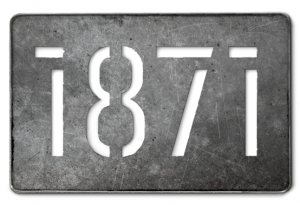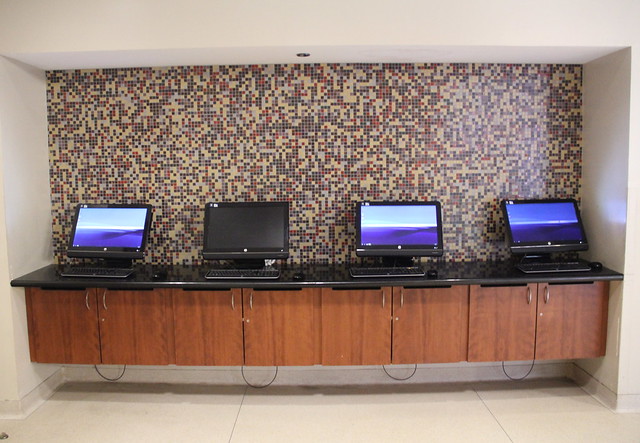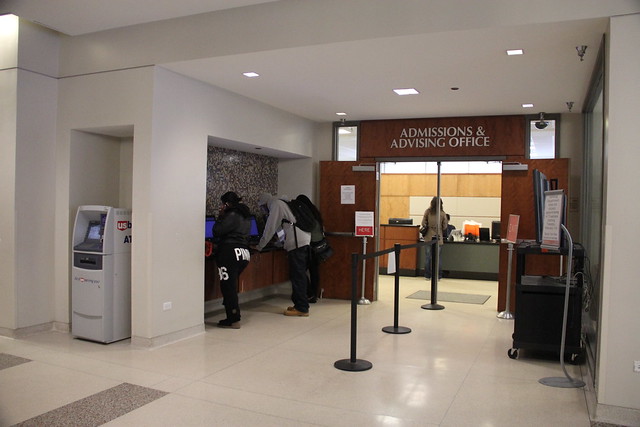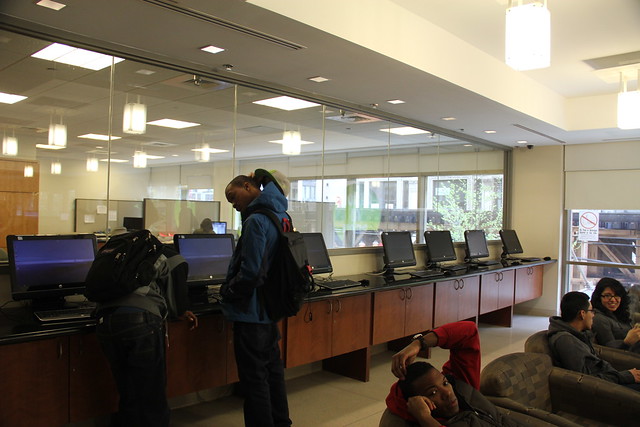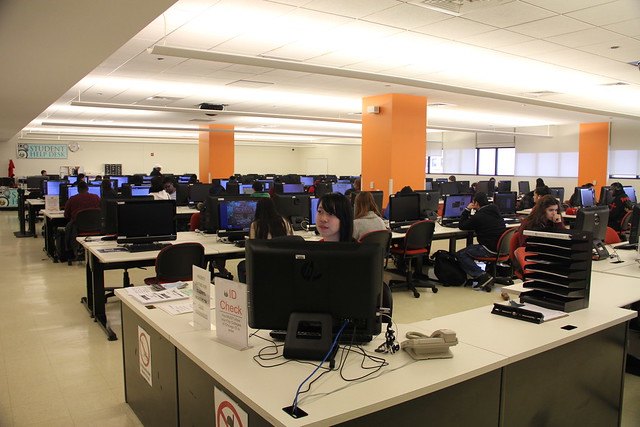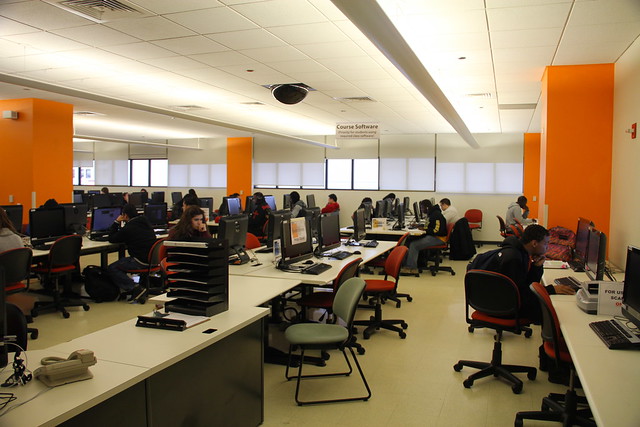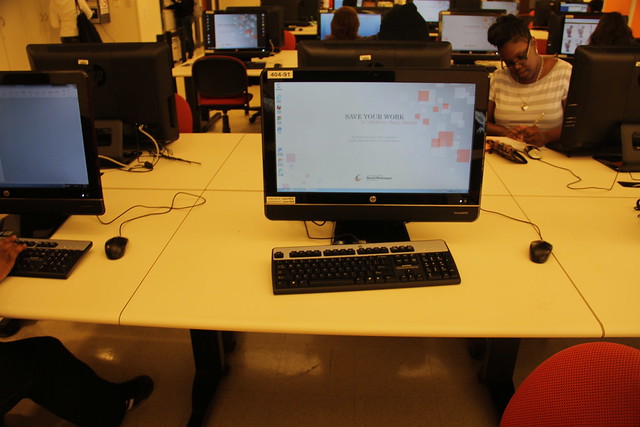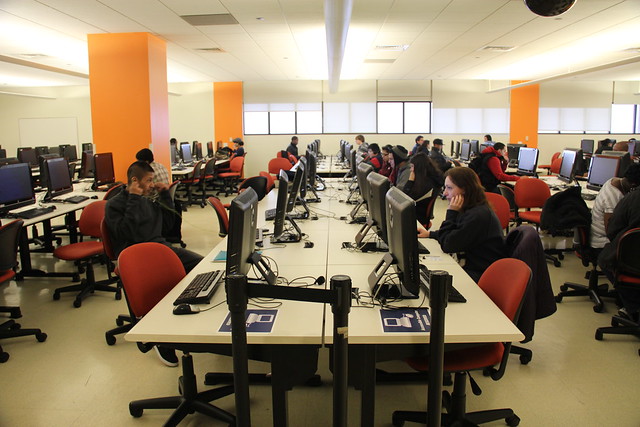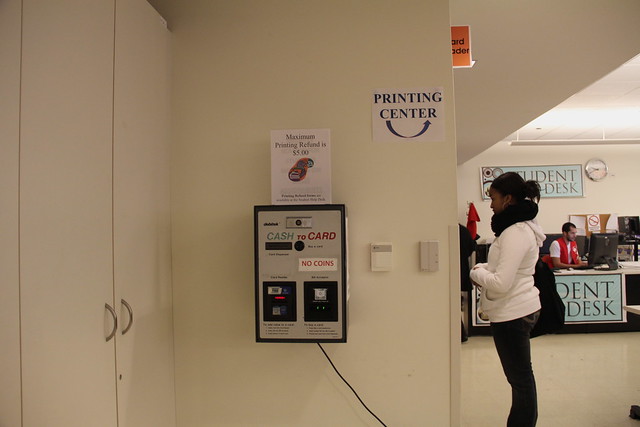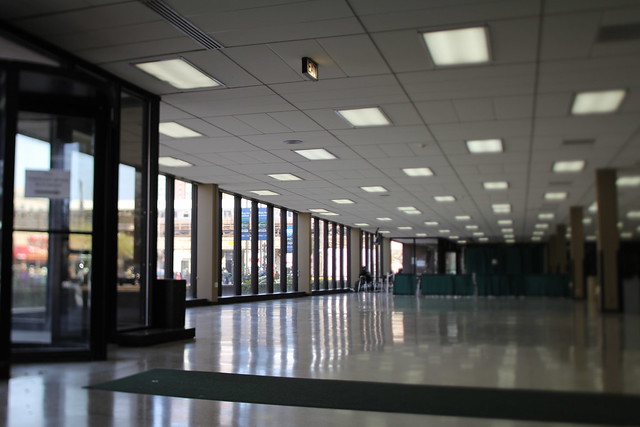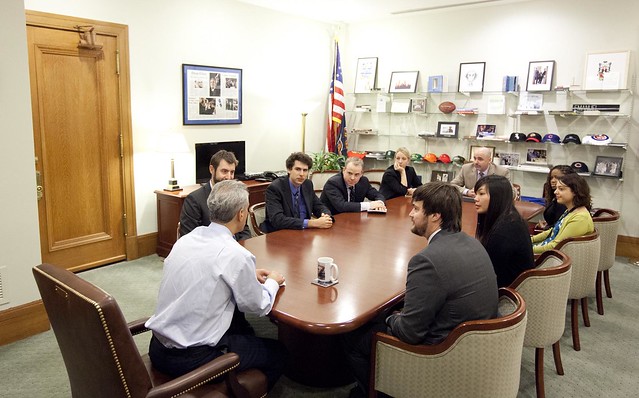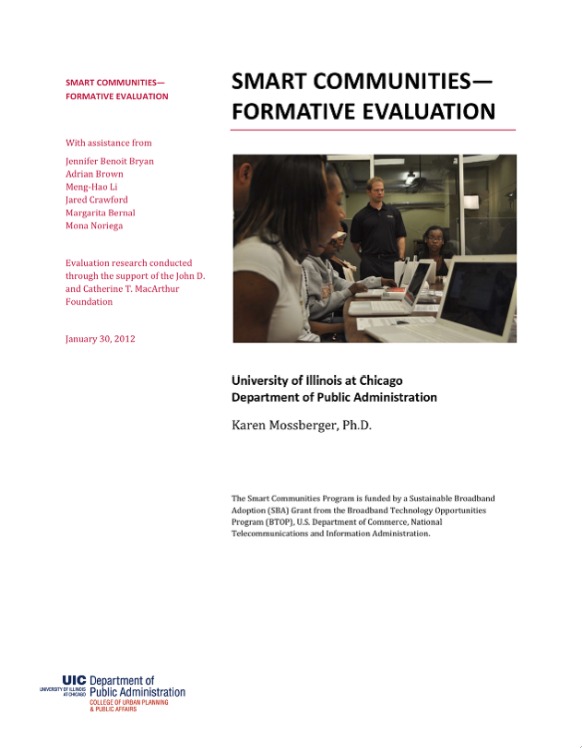 As part of their commitment to the Smart Communities program and the city’s Broadband Technologies Opportunity Program projects, the John D. and Catherine T. MacArthur Foundation funds research by Karen Mossberger, Ph.D, of the University of Illinois at Chicago Department of Public Administration in connection with Smart Chicago’s Sustainable Broadband Adoption grant.
As part of their commitment to the Smart Communities program and the city’s Broadband Technologies Opportunity Program projects, the John D. and Catherine T. MacArthur Foundation funds research by Karen Mossberger, Ph.D, of the University of Illinois at Chicago Department of Public Administration in connection with Smart Chicago’s Sustainable Broadband Adoption grant.
Here’s Dr. Mossberger’s the full report and a snippet from the Executive Summary of Dr. Mossberger’s highly informative report on this innovative program.
The Smart Communities Program aims to build a culture of technology use and digital excellence in five low and moderate-income community areas of the city of Chicago: Pilsen, Humboldt Park, and Southwest Chicago (which is a collaboration between the Englewood, Auburn Gresham, and Chicago Lawn neighborhoods). The program is funded through a $7 million federal Sustainable Broadband Adoption (SBA)1 grant for the purpose of increasing broadband adoption in underserved communities through outreach and training.
This formative evaluation reviews the progress of implementation from the award of the federal grant at the end of March 2010 through June 30, 2011, which is the end of the second quarter of 2011 for purposes of federal reporting. The report is intended to provide information for continuing the process of implementation, for consideration of future projects, and for the later outcome evaluation.
The Smart Communities program consists of several component programs designed to reach multiple constituencies throughout the target neighborhoods:
- FamilyNet Centers for EveryDay Digital training and drop-in assistance; — Technology Organizers within each of the community areas who do outreach and conduct Civic 2.0 training for community organizations;
- Business Resource Networks that offer assessments and assistance for neighborhood businesses with less than 500 employees;
- YouMedia programs for youth established in neighborhood libraries;
- Digital Youth Network after-school programs, with locations in each of the community areas;
- Digital Youth Summer Jobs available to participants from the Smart Communities areas;
- Community Portals supported by portal managers (in each of the 5 communities)
Additionally, these programs are supported by an awareness campaign across the communities, and by an earned computer program that will benefit some of the training participants.
The program is an ambitious one, with multiple organizations and activities spread across five communities. All programs have now been implemented, and most of the programs were operating by the end of 2010. Some were late, however, particularly the awareness campaign, the YouMedia programs, and the Englewood FamilyNet Center, all of which began in late summer of 2011. The delays for these projects were due to contract issues in some cases, although in others there were changes in leadership in collaborating organizations.
Demand for training was higher than anticipated, and waiting lists formed at the FamilyNet Centers as they began to offer classes in late 2010. Centers have devised ways to pace outreach and manage waiting lists, but the training continues to be popular, with few dropouts. The classes are free, and taught in Spanish as well as English. FamilyNet Center participants often have some experience online – a little over half have used the Internet somewhere, and a little over one-third have Internet access at home. But, they report low levels of skill when they enter the programs, and more than one-quarter of the participants have a formal education at the eighth grade level or below. Only 15 percent of participants are currently employed. Other training programs – the Civic 2.0 programs for community organizations – attract residents who have slightly more experience online, as well as others who have no familiarity with technology. Across sites, both staff and consultants spoke about the powerful differences the programs make in the lives of residents, opening new doors and conveying a new sense of empowerment through their Internet skills. By any account, there are many successes evident in the program.
1 The Sustainable Broadband Adoption grants are part of the Broadband Technology Opportunities Program (BTOP), or broadband stimulus grants of the American Recovery and Reinvestment Act (ARRA).
Download the complete report here.

